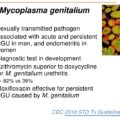PATM stands for “People Allergic to Me”, which is not a medical diagnosis, but rather a term used to describe a condition where a person believes that others are allergic to them, often accompanied by a strong odor that they perceive as unpleasant or offensive.
This condition is not recognized as a medical diagnosis by mainstream medical organizations, and there is limited scientific research on it. The cause of the perceived odor in PATM is unclear, and it is possible that the odor is actually due to a perceived mental condition or product of the person’s own body, such as a metabolic disorder, rather than an external factor.
If you are experiencing symptoms related to PATM or malodor, it is recommended that you seek medical advice from a qualified healthcare professional. They may be able to provide you with a proper diagnosis and suggest appropriate treatment options.
WHY is PATM a popular terminology?
PATM, or People Allergic to Me, has gained some popularity on social media and online forums because it is a condition that can be distressing and challenging for those who experience it. People who believe they have PATM often feel isolated and misunderstood, and the lack of recognition from the medical community can make it difficult for them to get the help and support they need.
As a result, some people with PATM have turned to social media and online communities to connect with others who may be experiencing similar symptoms, share their stories, and seek advice or support from others who understand what they are going through.
However, it is important to note that there is limited scientific evidence to support the existence of PATM as a distinct medical condition, and self-diagnosis or reliance on online communities can be risky. It is always recommended that individuals with any medical concerns seek advice from a qualified healthcare professional.
Can A Person Be Allergic To Other People?
While it is possible for a person to be allergic to certain substances that may be present on another person’s body, such as pet dander, dust mites, or pollen, it is not possible for a person to be directly allergic to another person.
Allergic reactions occur when the body’s immune system mistakenly identifies a harmless substance as a threat and overreacts to it. This can result in a range of symptoms, such as itching, hives, swelling, and difficulty breathing. However, this type of immune response is triggered by specific allergens, such as certain foods, medications, or environmental factors, and not by other individuals.
In the case of PATM, it is important to note that the perceived allergic reactions from others may not be due to a true allergic response, but rather a misunderstanding or misinterpretation of social cues or behavior. It is always recommended that individuals who are experiencing symptoms seek medical advice from a qualified healthcare professional who can help determine the underlying cause and provide appropriate treatment options.
Symptoms of PATM
Individuals who believe they are experiencing PATM may describe a range of symptoms, which may include:
- Feeling that others are allergic to them or avoiding them.
- A strong or unpleasant body odor, even after showering or using deodorant
- Itching, sneezing, or coughing in the presence of the affected individual.
- Skin reactions, such as hives or rash, when in contact with the affected individual.
It is important to note that these symptoms may be subjective and not necessarily based on objective evidence. Additionally, these symptoms can be caused by a range of factors, including medical conditions, personal hygiene, diet, and social anxiety.
If you are experiencing any of these symptoms or have concerns about your body odor, it is recommended that you seek advice from a qualified healthcare professional who can help determine the underlying cause and provide appropriate treatment options.
Can PATM be treated?
For a person experiencing symptoms related to body odor or social anxiety, there may be treatment options available. If the odor is due to a medical condition, such as a metabolic disorder or a skin condition, treatment may involve addressing the underlying cause. This may involve medication, dietary changes, or other interventions recommended by a healthcare professional.
If the odor is due to personal hygiene, improving hygiene practices such as showering regularly, using antiperspirants and deodorants, and wearing clean clothes may help.
If the odor is due to social anxiety, counseling or therapy may be recommended to help manage the symptoms and improve social interactions.
It’s important to note that the appropriate treatment for PATM, or any related symptoms, will depend on the underlying cause of the symptoms. It is recommended that individuals who are experiencing these symptoms seek medical advice from a qualified healthcare professional who can help determine the underlying cause and provide appropriate treatment options.
How to prevent PATM
there is limited scientific research on how to prevent PATM. However, if a person is experiencing symptoms related to body odor or social anxiety, there are steps that they can take to help prevent or manage these symptoms, including:
- Maintain good personal hygiene: Showering regularly, using antiperspirants and deodorants, and wearing clean clothes can help reduce body odor.
- Avoid certain foods: Some foods, such as garlic and onions, can cause body odor. Limiting or avoiding these foods may help reduce body odor.
- Manage stress and anxiety: Stress and anxiety can cause sweating, which can lead to body odor. Relaxation techniques, such as meditation or deep breathing, can help manage stress and anxiety.
- Seek medical advice: If body odor or other symptoms persist, it is recommended that individuals seek advice from a qualified healthcare professional who can help determine the underlying cause and provide appropriate treatment options.
It’s important to note that while these steps may help manage symptoms related to body odor or social anxiety, there is no guaranteed way to prevent PATM or any other perceived social issues. It is recommended that individuals who are experiencing these symptoms seek medical advice from a qualified healthcare professional who can help determine the underlying cause and provide appropriate treatment options.






